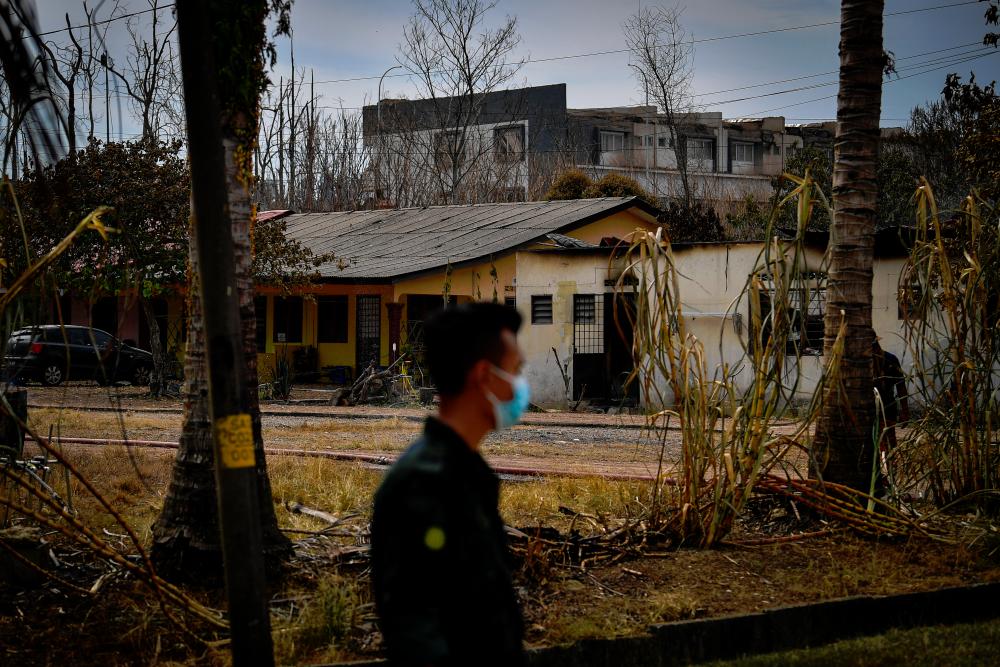KUALA LUMPUR: The gas pipeline fire in Putra Heights, Subang Jaya, today is believed to have been caused by a Boiling Liquid Expanding Vapor Explosion (BLEVE), according to a retired senior fire officer.
Datuk Seri Mohammad Hamdan Wahid, a former director-general of the Fire and Rescue Department (JBPM), said the incident could have been due to leaked flammable gas, causing gas vapour to linger in the air before ignition triggered a massive explosion.
“When this flammable gas vapour is suspended in the air, it is just a matter of ignition or a fire source ... leading to a powerful explosion from a leaking pipeline or a container holding flammable gases.
“This container may have ruptured, leaked, or had an open valve, among other possible causes,” he said during the Bernama World programme aired by Bernama TV today.
He added that all gas pipeline installations in the country must comply with international safety standards and local regulations, such as the Malaysian Standard for Storage, Handling and Transport of Liquefied Petroleum Gases (MS830) and the Malaysian Standard for Storage and Handling of Flammable and Combustible Liquids (MS761).
Mohammad Hamdan said oil and gas companies must also adhere to international standards such as The Compressed Gases and Cryogenic Fluids Code (NFPA 55), which stipulates a safety buffer zone to minimise the risk of explosions and fires in the event of a leak.
He advised nearby residents to evacuate to a safe area immediately, follow instructions from authorities, including JBPM, and stay away from the affected site.
“This fire can generate radiant heat that damages nearby properties and leads to what we call an escalation of fire. Surrounding assets could also catch fire once they reach a certain temperature,” he explained.
Meanwhile, oil and gas safety expert and activist Captain MS Affendy Abdul Rani said pipeline fires differ from regular fires as they involve highly flammable materials under high pressure, which can continue burning as long as the gas supply remains open.
He noted that gas fires burn at higher temperatures and are difficult to extinguish with water alone, as the leaking gas can keep reigniting.
“Shutting off the gas supply is a critical step, as it cuts off the fuel source and prevents the fire from spreading further. If the gas flow isn’t stopped, the fire will continue burning,” he said.
Meanwhile, former National Institute of Occupational Safety and Health (NIOSH) chairman Tan Sri Lee Lam Thye stressed the need to prioritise the welfare of residents living near the fire site. He urged Petronas and relevant authorities to take several key actions.
“First, it is very important to provide real-time updates on the situation, including air quality assessments and potential health risks. Second, ensuring a thorough evacuation and support for affected families, especially vulnerable groups, is essential.
“Third, a comprehensive and transparent investigation into the cause of the leak and the measures to prevent future incidents must be conducted,” he said, adding that the leak could have been detected earlier.
As of 3.40 pm, 190 houses, 148 cars and 11 motorcycles have been damaged in the fire on Jalan Putra Harmoni in Selangor.
No fatalities have been reported so far, and the cause of the fire remains under investigation.









